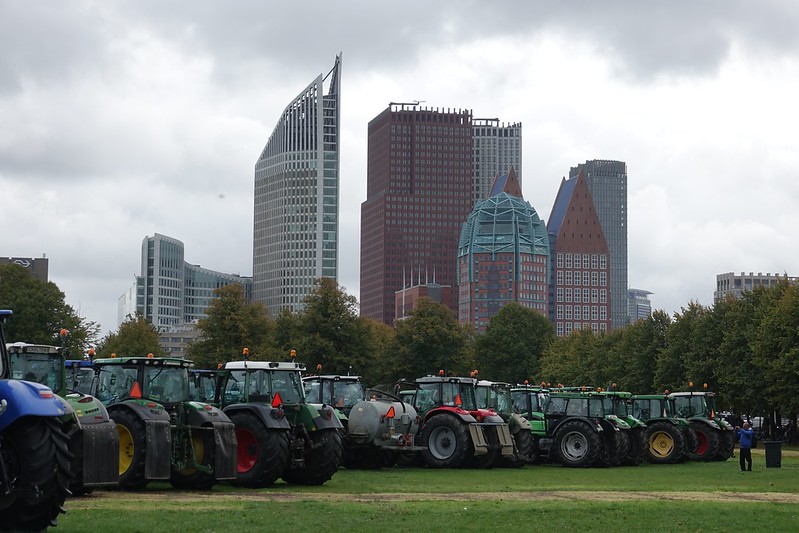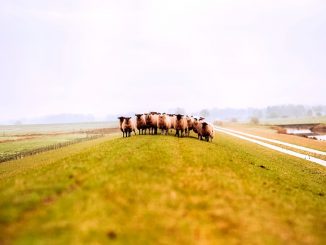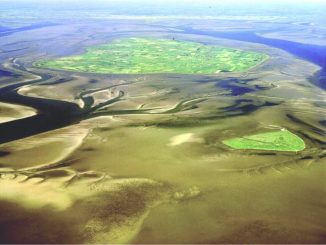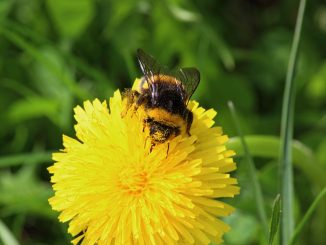
This autumn, Dutch farmers brought the Netherlands to a standstill after it became clear they would be hit hard for the nitrogen crisis the country is facing. As protests intensified, politicians were unable to offer any real solutions. Our Dutch correspondent Hans Wetzels has more, in this first of a two parter.
In October 2019 thousands of tractors descended onto the Dutch administrative capital of The Hague. In the following weeks farmers’ protests spread like a wildfire throughout the Netherlands. In the far northern city of Groningen, farmers tried to ram a tractor through the front door of the provincial assembly hall, while the national agricultural organization LTO (Land- en Tuinbouworganisatie) organized strikes in eight of the twelve Dutch provinces – causing mayhem everywhere in the small country.
The protests were directed at a sudden government clampdown on farm nitrogen emissions. Earlier in 2019 the Dutch administrative high-court (Raad van State) ruled that a government licencing system for nitrogen-emitting activities (from farming to road construction) was in breach of EU-rules. Suddenly thousands of construction projects came to a screeching halt. To free up the necessary emission space the government proposed withdrawing farm emission rights. Liberal MEP Tjeerd de Groot (D66) called for halving the entire Dutch livestock population. “As a sector, we are not principally opposed to cutting back nitrogen emissions,” Trienke Elshof of LTO says. “But we are against a generic halving of the amount of livestock. That wouldn’t solve the nitrogen crisis and just send farmers out of business.
Ministry
After the high-court judgement the Dutch Agricultural Ministry summoned all representatives of the agricultural sector to an office complex called The Red Elephant in the center of The Hague. The nitrogen crisis caught the government completely off-guard: the entire judicial system for nitrogen permits, known as the Programmatic Approach Nitrogen (PAS – Programmatische Aanpak Stikstof) has been swept right of the table.
“The problem the high-court saw in the PAS-system was that it isn’t clear whether giving out a nitrogen license would lead to the deterioration of the natural ecosystem in a certain area,” Elshof explains. “The government never had a plan b. Three-thousand farms and building projects lost their nitrogen rights overnight. That has led to an explosion of dissatisfaction among farmers who have had more and more environmental demands piling up on them to begin with. ”
Maximum amount
In practice Dutch meat and dairy farmers keep fewer animals on their farms than they own the nitrogen rights to. “It gives them some room to maneuver if they’re not completely at the maximum amount of nitrogen they’re allowed to emit,” Elshof says. “If a farmer wants to build a new stall he’ll need some extra emission rights because construction also emits nitrogen. What the government wanted to do is creating room for other sectors by withdrawing those rights. As an agricultural organization we’re not saying there’s no room for improvement. Especially the amount of nitrogen the Dutch livestock industry emits could possibly be lower. But if the government really wants to reduce emissions they’d, for example, better focus on lessening protein-levels in feeds or stimulation of grazing.”
Critical voices have been weary of the future effects of the PAS-policy since it was first conceived in 2009. Wanne Roetemijer has been working in nature conservation for years. A forest manager by occupation, he has been keeping track of the detrimental effects of nitrogen for some time. By handing out nitrogen licenses and promising to reduce harmful nitrogen deposition in long run, the government has been continuously pushing the problem ahead.
According to research by Dutch media, criticism of the PAS-policy from provincial civil servants has been suppressed at ministerial level. “This problem has been well known for years. But consecutive governments decided to ignore it,” Roetemeijer explains. “Especially sandy areas, dunes in the coastal zones and inland moors are heavily impacted. An abundance of nitrogen in the soil leads to surpluses of nutrients and stimulates weeds that overgrow the natural flower beddings. That, in turn, has dramatic effects on insect populations and birds.”
Imported nitrogen
According to the national Health & Environment Institute RIVM (Rijksinstituut voor Volksgezondheid & Milieu) the Dutch agricultural sector is responsible for about 46 percent of Dutch nitrogen emissions. Nitrogen (N2) in itself is not poisonous. But high emissions of nitrogen oxides (NOx) and ammonia (NH3) do have harmful effects.
Whereas nitrogen oxides mostly come from heavy traffic or industries, ammonia is a direct consequence of intensive livestock farming. Manure accumulates in stables, while fertilizers farmers use goes into the soil water and air. Since most of that nitrogen is imported through feed from the South-American ecosystem, it can tip local environments out of balance. “The Netherlands is a small country but we have a major nutrient-influx to deal with,” Roetemeijer explains. “All that nitrogen is not a natural part of the Dutch ecosystem and makes it impossible to ever close the loop farms.”
The northern province of Friesland was the first to cave in to farmers demands when it rolled back the withdrawal of farm emission rights after farmers completely blocked the old provincial capital of Leeuwarden. Province after province is now following the Frisian example and rolls back the measures demanded by the national government in The Hague. The evermore militant farmers’ group Farmers Defense Force has even tackled the scientists of RIVM and openly questions the calculated amount of nitrogen the agricultural emits.
LTO, several farmers’ groups and Dutch authorities have been trying to work out a workable solution to the nitrogen crisis in the course of November. In an unprecedented move the national government even stated it would be willing to compensate farmers wanting to shut down operations in an effort to control emissions.
Roetemeijer: “Buying out big and polluting farms close to nature reserves could be a part of the solution. But solving the problem would require a much bigger paradigm shift in agriculture and a stop to what we’re doing now. And by that I mean importing large amounts of nitrogen from South-America.”
Further reading
Part 2
Background Reading Elsewhere
Q&A: Is Government the culprit as EU farmers rise up? November 2019
Dairy farm fraud clampdown in Netherlands (Feburary 2018)
More on ARC2020
Ammonia Pollution | The role of CAP and Northern Ireland’s State Funders







16 Trackbacks / Pingbacks
Comments are closed.